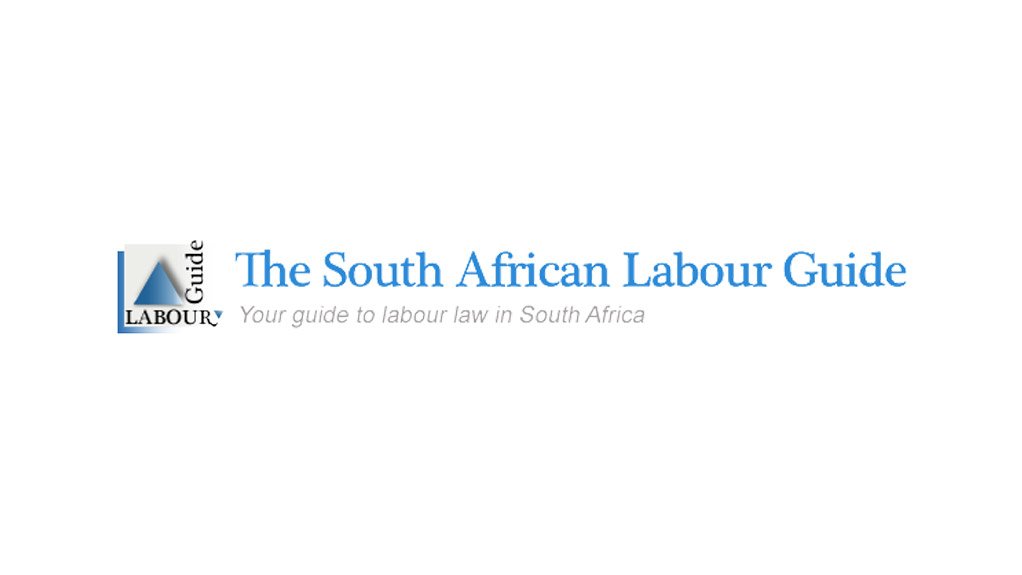Employers have often relied on the definitions of “employee” contained in the Labour Relations Act (“the LRA”) and the Employment Equity Act (“the EEA”) in order to prevent former employees from referring unfair labour practice and/or unfair discrimination disputes.
Both the LRA and the EEA define employees in a manner which, on a literal interpretation, excludes former employees from referring such disputes.
In this regard, section 186(2) of the LRA provides that an unfair labour practice “means any act of omission that arises between an employer and an employee…” and section 191 permits “the employee alleging the unfair labour practice…” to refer a dispute.
Similarly, section 6 of the EEA provides that “no person may unfairly discriminate, directly or indirectly, against an employee…”.
Consequently, so the argument goes, once an employee’s employment is terminated she/he is no longer entitled to refer an unfair labour practice or unfair discrimination dispute because she/he is not an ‘employee’ in terms of the LRA or the EEA.
In Sithole v Nogwaza NO & others (1999) 20 ILJ 2710 (LC), the Labour Court adopted this reasoning in relation to a claim brought by a former employee under the residual Unfair Labour Practice provisions of the LRA. The Court held as follows:-
“…the remedies available in schedule 7 item 3 relative to the residual unfair labour practice listed in item 2(1), with the exception of item 2(1)(d), are available only for disputes which arise between employers and employees, that is where there is an existing employment relationship at the time the dispute is referred to the Commission” (Emphasis added).
This position was subsequently refined in Velinov v University of KZN & others [2005] JOL 16038 (LC) where the Court held that employees were also entitled to refer unfair labour practice disputes during their notice periods (because they remained employees during that period).
The majority of the Rulings by the CCMA and Judgments of the Labour Court followed the aforementioned decisions and consequently former employees were effectively precluded from referring unfair labour practice and unfair discrimination disputes after their employment had been terminated.
There was, however, some dissent. In NS v South African Mutual Life Assurance Society Ltd t/a Old Mutual & Others [2001] 8 BLLR 935 (LC) the Labour Court held as follows:-
“I see no basis in law or equity upon which a remedy sought in respect of a wrong committed by an employer or employee against the other can be denied simply because the relationship has come to an end, there has to be something substantially more”. (Emphasis added).
In the recent unreported case of Malope Mathews v Crest Chemicals (Pty) Ltd (Unreported, Labour Court, Van Niekerk, J, 20 February 2017, JS286/15), the Labour Court again re-visited the majority position. The Labour Court noted that restricting the unfair labour practice and unfair discrimination provisions to current employees by virtue of a literal interpretation of the term ‘employee’ “is at variance with an interpretation that promotes constitutional values and in particular, the right to equality in employment and the right to fair labour practices…”.
Consequently, the Court held that the fact that the dispute was referred by the employee after the termination of his employment was not fatal to his claim and the matter should proceed to trial.
The decision in Crest Chemicals is consistent with the general approach by the Courts to ensure that legislation is read in such a way so as to protect constitutionally enshrined rights (including the right to fair labour practices and not to be unfairly discriminated against).
In light of the Crest Chemicals Judgment, it appears that the door is now open for former employees to refer unfair labour practice and unfair discrimination disputes despite the termination of their employment (provided that the dispute pertains to events that transpired during the employee’s employment). This could have serious implications for employers.
Written by James Horn, Associate, Employment Law, Benefits & Industrial Relations, Cowan-Harper Attorneys
EMAIL THIS ARTICLE SAVE THIS ARTICLE ARTICLE ENQUIRY
To subscribe email subscriptions@creamermedia.co.za or click here
To advertise email advertising@creamermedia.co.za or click here











